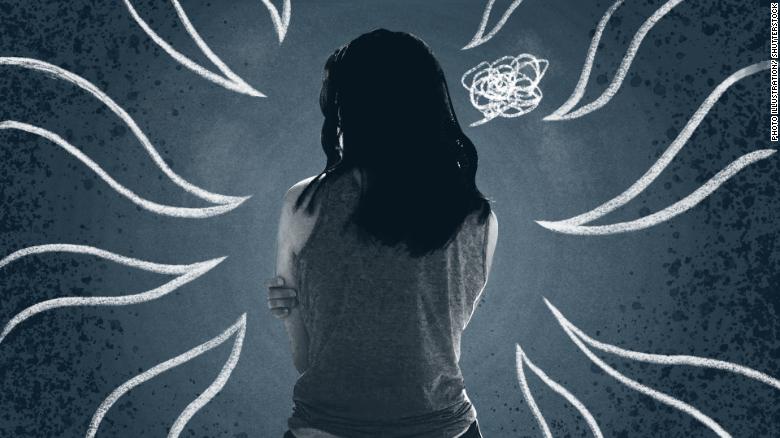Argentina, and the Consequences of Prolonged COVID-19 Lockdown
"When the quarantine came, I had to close my business completely. There came a time when I owed seven months of rent, six months of electricity, six months of gas, and union and accounting fees.""It's a desperate situation because we're very much in debt and we're going to have to work a lot and wait a long time to catch up, and since we don't know what's going to happen next, it's a terrible uncertainty, which has affected me disproportionately in terms of my state of mind."Daniel Aponte, bar owner, Lanus, Greater Buenos Aires"When compulsory isolation is prolonged, chronic stress begins, which is linked to anxiety disorders, depression and addictions.""These symptoms also generate sleep problems and various physical ailments."Patricio Cristobal Rey, head, teaching and research division, mental health department, Buenos Aires University
 |
"This whole situation has given me an arrhythmia and I have to use a Holter [portable heart monitor] to control it.""I also have trouble sleeping, because I have trouble breathing due to this problem."Candela Robledo, 20, Buenos Aires"Having more than 200 days without pleasant stimuli, such as social meetings, trips or outings, affected my motivation ... even more so knowing that the economic situation in my context is terrifying.""I have lost my appetite. I eat only once a day, not because I don't have enough food, but because I don't want to eat."Azul Weimann, 3rd year of study, nutritional sciences
"My son has just turned 15 and although he is a very good student and always communicates with his classmates, lately he does not have the same enthusiasm.""He is also afraid that his father or I will go out to work. Last week we started going to work for a few hours and he sent me a message saying that he missed me. So we decided not to leave him alone and to go to work one day each, although he doesn't like that either because he's afraid we'll get sick."Gabriela Vianco, resident, Buenos Aires
 |
| Buenos Aires residents Ezequiel Fuentes and Mariana Rimondino say their young son has spent a third of his life in lockdown |
Buenos Aires, the capital city of Argentina along with its metropolitan region represents home to 40 percent of the entire country's population. Argentina is a country with the highest number of psychologists in practise worldwide. Despite which few people these days of lockdown in the country are able to access treatment. Psychologists state that there are many people unable to obtain needed treatment and given the fact that the nation has enacted the most strict of lockdown rules for such a prolonged period once there is an easing and the country opens, the cost to the population's mental health will be difficult to tackle, outranking the economic situation in urgency.
It has been over 200 days that Buenos Aires citizens have been in lockdown, reflecting one of the world's most enduring quarantines. This, despite the fact that the country has recently become the fifth in the world to log one million confirmed cases of COVID-19. At the beginning there was a ten-day general national quarantine, decreed by government on March 20. That situation was extended by weeks, and eventually by months. Restrictions were eventually lifted for some parts of the country, but not in Buenos Aires which has undergone seven months of lockdown.
It is the country's small business owners who are suffering the economic consequences of the prolonged restrictions most. Of the 600,000 small businesses that existed prior to the lockdown, a July report by the Argentine Chamber of Commerce and Services, has reported that over 42,000 of that total had closed permanently. Over 20 percent of the population works as informally employed and while companies are prohibited officially from laying off workers as a result of COVID-19, when the businesses close down their employees -- hundreds of thousands -- are left without employment.
 |
| The people of Buenos Aires are hardly proud of having struggled through the world's longest lockdown — protests against further measures are growing |
Buenos Aires University's psychology observatory reported on the results of a study that depression among the population has increased fivefold, with three of four Argentines burdened with problems sleeping, and one in two having suspended daily activities in hopes of preserving their health. Socializing has remained strictly limited to outdoor public spaces; jogging permitted only at certain times of the day, despite that the quarantine was slightly eased in September. Leaving residents to speak of the numbing effect brought by such isolation.
In the large metropolitan Buenos Aires area, children aged under 15 only may embark on shopping expeditions with their parents, while in the city proper, governed independently, restrictions are less strict, permitting parents to get out with their children twice weekly for a limited period as well as on weekends. Contact with classmates and teachers has been non-existent for over half a year.
 |
| A protest in Buenos Aries against lockdown measures. |
Labels: Argentina, COVID-19, Lockdown, Mental Health

0 Comments:
Post a Comment
<< Home